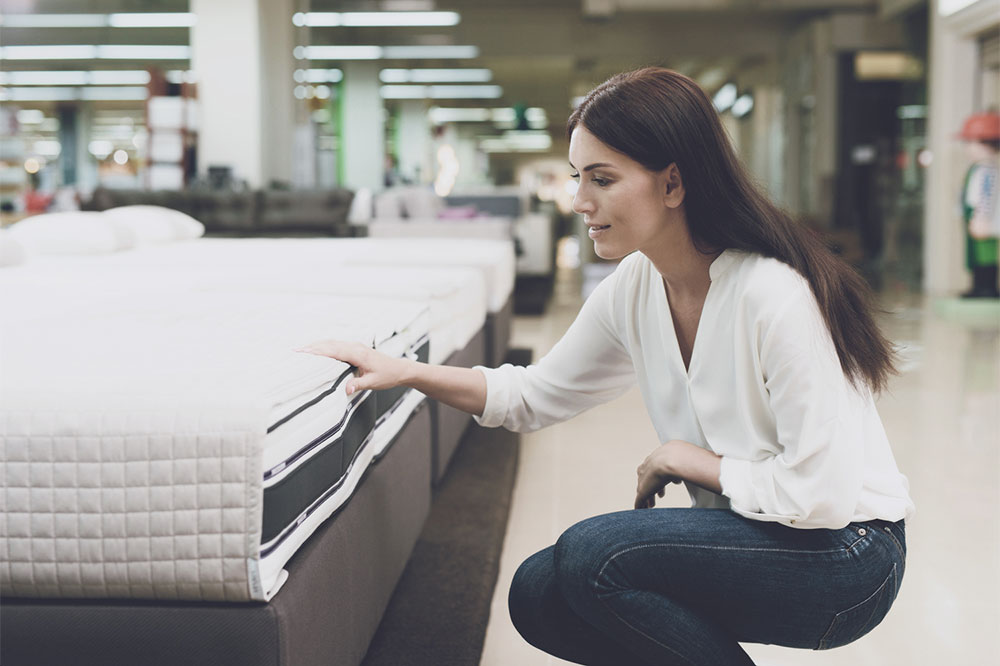
Avoid these 6 things before bedtime
Good sleep improves brain performance and reduces stress. But sometimes, sleep can be disturbed due to lifestyle changes, stress, anxiety, and physical ailments. Insufficient sleep can increase the risk of developing a few mental and physical health complications. Insomnia is one of them, where people cannot rest or have disturbed sleep. In recent times, most people’s sleep quality has deteriorated due to increasing stress levels. Here are a few things you should avoid before bedtime:
Using electronic devices
The blue light emitted by smartphones, televisions, laptops, and other devices can affect the brain and prevent one from falling asleep. This light prevents the secretion of melatonin, a sleep-inducing hormone. Electronic devices should be kept at least 15 inches away from the body, and the brightness of the screen should be reduced to limit the possibility of light-related sleep issues. Also, avoiding screens a few hours before bed is best to ensure sound sleep. Watching exciting and scary movies can trigger the release of cortisol, a natural alarm system in the body. Instead, watch documentaries or read a book an hour before going to bed. Use sleep apps that provide sleep-inducing music options for those with severe health conditions.
Stress and anxiety
Stress and anxiety can disrupt mental and physical health, leading to sleep deprivation. It is, therefore, recommended not to check work emails before going to bed as they could make you agitated or anxious. Also, avoid discussing any serious issues with your family, spouse, or partner that could mentally affect you. This is because the negative emotions trigger the adrenal gland to produce the hormones cortisol and adrenaline, which can prevent you from calming down and falling asleep. Hence, meditation and other activities just before bedtime might be helpful to calm the body and mind. A hot shower at night can be ideal as it enhances blood flow, relaxes your body, and prepares you for a good night’s sleep.
Caffeinated beverages
Refrain from having beverages that contain caffeine, such as coffee or a few sports drinks, late in the evening or just before bed. This is because caffeine, a known stimulant, can keep your body awake for up to a minimum of six hours. Therefore, it is suggested to avoid caffeine after 6 pm. Caffeinated beverages during the day can keep you alert, but they can make you restless and disrupt sleep at night. Also, avoid eating chocolates as they contain theobromine, a chemical that increases heart rate and prevents you from falling asleep. Drinking lots of water before bed will increase the frequency of urinating, leading to nighttime wakings. Hence, limit the water intake before bedtime to have a night of uninterrupted sleep.
Intensive workout at night
Many people think that late-night workouts can help them sleep well due to tiredness. Doing intense exercises just before sleeping should be strictly avoided. This is because the heart rate and body temperature rise after exercising, making one feel more energetic and active. Instead, opt for yoga exercises or meditation to relax the body and mind during the night. Stimulating energy levels and heart rate late in the evening or before bed may disturb the sleep cycle. Plan your workouts at least 3 hours before sleeping.
Unhealthy eating habits
Going to bed empty stomach or overeating greasy, unhealthy food can adversely affect the quality of sleep. Heavy meals can disturb the digestion process and lead to acidity and bloating. Therefore, it is advised to have dinner three hours before bed so that the body takes enough time to process the food effectively. In the same way, going to bed without having a meal can lower blood sugar levels and give rise to other health complications. Nutritionists advise people to space their meals well during the day to avoid any problems. Unhealthy eating habits can affect the quality of sleep. Also, prevent binge-eating at night as it has adverse effects on sleep.
Napping during the day
Taking a nap during the day might seem like a good idea to many as it helps replenish energy levels and relaxes the mind. However, a nap can affect the quality of your sleep at night and make it difficult for you to fall asleep. Experts recommend a short rest period, also known as a power nap. Also, ensure that the nap time is not too close to bedtime as it might lower the sleep drive.
A relaxing routine is mandatory for a good night’s slumber. Keep the ambiance comfortable and restful, and ensure that your room is not too bright due to outdoor lights peeking through the windows. Keep the blinds drawn if you need to. Having a comfortable bed and bedding is also essential for a good night’s rest. Make sure the sheets are changed regularly, as sleeping on dirty sheets may trigger allergic reactions. If you still have trouble sleeping, you might need to consult a doctor as sometimes a few prescribed treatment options could interfere with sleep patterns.


